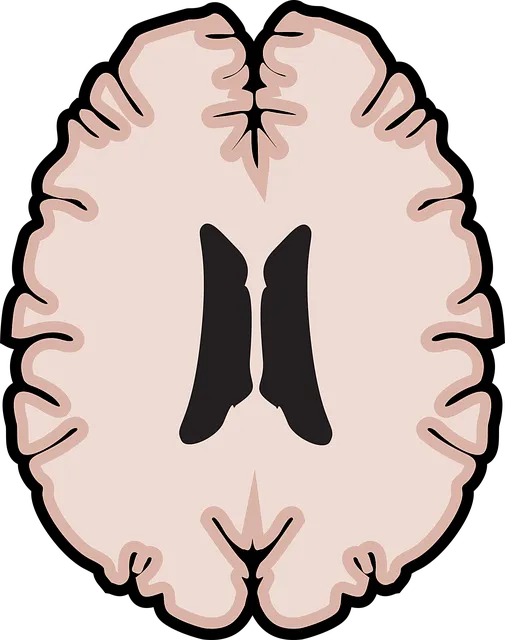Kaiser Permanente Lafayette addresses mental wellness through innovative solutions, focusing on burnout prevention and emotional intelligence coaching for healthcare professionals. Their holistic approach combines evidence-based therapies with patient-centered care, improving both staff well-being and patient outcomes. Effective programs cater to individual and collective needs, include tailored sessions, safe environments, regular feedback, and coach training in active listening and empathy. Integrating practices like CBT and mindfulness, along with client assessments and feedback, ensures successful mental wellness coaching that enhances overall well-being in Lafayette and beyond.
In today’s fast-paced world, the demand for accessible mental wellness support has never been higher. This is especially true in communities like Lafayette, where stress and anxiety levels often mirror bustling urban environments. Recognizing this growing need, organizations like Kaiser Permanente have pioneered innovative approaches to mental health services, including coaching programs that go beyond traditional therapy.
This article explores the development of effective mental wellness coaching programs, highlighting key components, integrating evidence-based practices, and measuring their profound impact.
- Understanding the Growing Need for Mental Wellness Support
- Kaiser Permanente's Approach to Mental Health Services
- Developing Effective Coaching Programs: Key Components
- Integrating Evidence-Based Practices into Coaching
- Measuring Success and Impact: Evaluating Coaching Programs
Understanding the Growing Need for Mental Wellness Support

In today’s fast-paced and demanding world, the need for mental wellness support has never been more critical, especially within the healthcare sector. Kaiser Permanente, a renowned healthcare provider in Lafayette, recognizes this growing requirement and is at the forefront of implementing innovative solutions to address mental health challenges. The prevalence of stress, anxiety, and burnout among healthcare providers is a pressing issue, given their constant exposure to emotionally taxing situations. Therefore, developing comprehensive coaching programs becomes essential to equip these professionals with effective burnout prevention strategies for healthcare providers.
By focusing on emotional regulation and emotional intelligence, coaching can empower medical staff to manage stress effectively and maintain optimal mental wellness. This proactive approach not only benefits the individuals but also improves patient care by enhancing their ability to empathize, communicate, and make sound decisions. With programs tailored to meet these specific needs, Kaiser Permanente is setting a standard for holistic healthcare, ensuring that emotional well-being is just as vital as physical health in the medical community.
Kaiser Permanente's Approach to Mental Health Services

Developing Effective Coaching Programs: Key Components

Developing effective mental wellness coaching programs requires a multi-faceted approach that addresses both individual and collective needs. At Kaiser Permanente Lafayette, for instance, mental health services play a pivotal role in promoting overall well-being. A robust coaching program should start with assessing the specific challenges faced by the target audience, whether it’s anxiety relief or broader mental health awareness. Tailoring sessions to cater to diverse issues ensures engagement and relevance.
Key components of successful programs include establishing clear goals, using evidence-based techniques, fostering a safe and supportive environment, and integrating regular feedback loops. Coaches must be trained in active listening, empathy, and various therapeutic modalities. Incorporating strategies for stress management, mindfulness, and resilience building equips individuals with tools to navigate mental health challenges. Additionally, promoting peer support groups or community resources can enhance the program’s impact, creating a network of care that extends beyond individual coaching sessions.
Integrating Evidence-Based Practices into Coaching

In the development of mental wellness coaching programs, integrating evidence-based practices is paramount for effectiveness and client outcomes. Organizations like Kaiser Permanente, known for its comprehensive healthcare services, including mental health support in Lafayette, demonstrate the importance of blending practical strategies with scientific rigor. This approach ensures coaches are equipped to guide clients through challenges using proven techniques rather than relying solely on anecdotal methods. By incorporating mental health education programs designed around Mind Over Matter principles, these initiatives can significantly enhance overall well-being.
Evidence-based practices provide a solid framework for addressing various mental wellness concerns. Coaches who stay informed about the latest research and incorporate effective interventions from fields such as cognitive-behavioral therapy (CBT) or mindfulness training can offer tailored support to individuals seeking better mental health. This integration not only improves program quality but also fosters trust and engagement among participants, ultimately contributing to more positive outcomes in their mental wellness journeys.
Measuring Success and Impact: Evaluating Coaching Programs

Measuring success and impact is a vital aspect of developing effective mental wellness coaching programs, such as those offered by Kaiser Permanente in Lafayette. To evaluate the efficacy of these initiatives, coaches should employ structured assessments both before and after the coaching period. These assessments can gauge clients’ emotional regulation skills, self-esteem improvement, and overall emotional well-being promotion techniques. By comparing these scores, coaches gain valuable insights into the program’s effectiveness.
Regular feedback from clients is also crucial. Incorporating client testimonials and satisfaction surveys allows for a more comprehensive understanding of their experiences. This data can highlight areas of improvement and ensure that the coaching programs align with the needs of the community, like those seeking mental health services in Lafayette. Ultimately, successful evaluation leads to refined strategies, enhancing the positive impact on individuals’ emotional well-being.
Mental wellness coaching programs are emerging as a powerful tool for addressing the growing need for mental health support. As evidenced by Kaiser Permanente’s successful integration of these programs, a structured and evidence-based approach can significantly improve individual well-being. By focusing on key components like personalized goals, skills development, and regular feedback, these initiatives can foster positive changes in Lafayette and beyond. Regular evaluation ensures that coaching programs remain effective and impactful, ultimately enhancing the mental health landscape for all.






